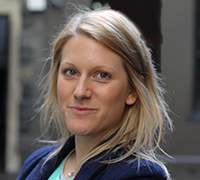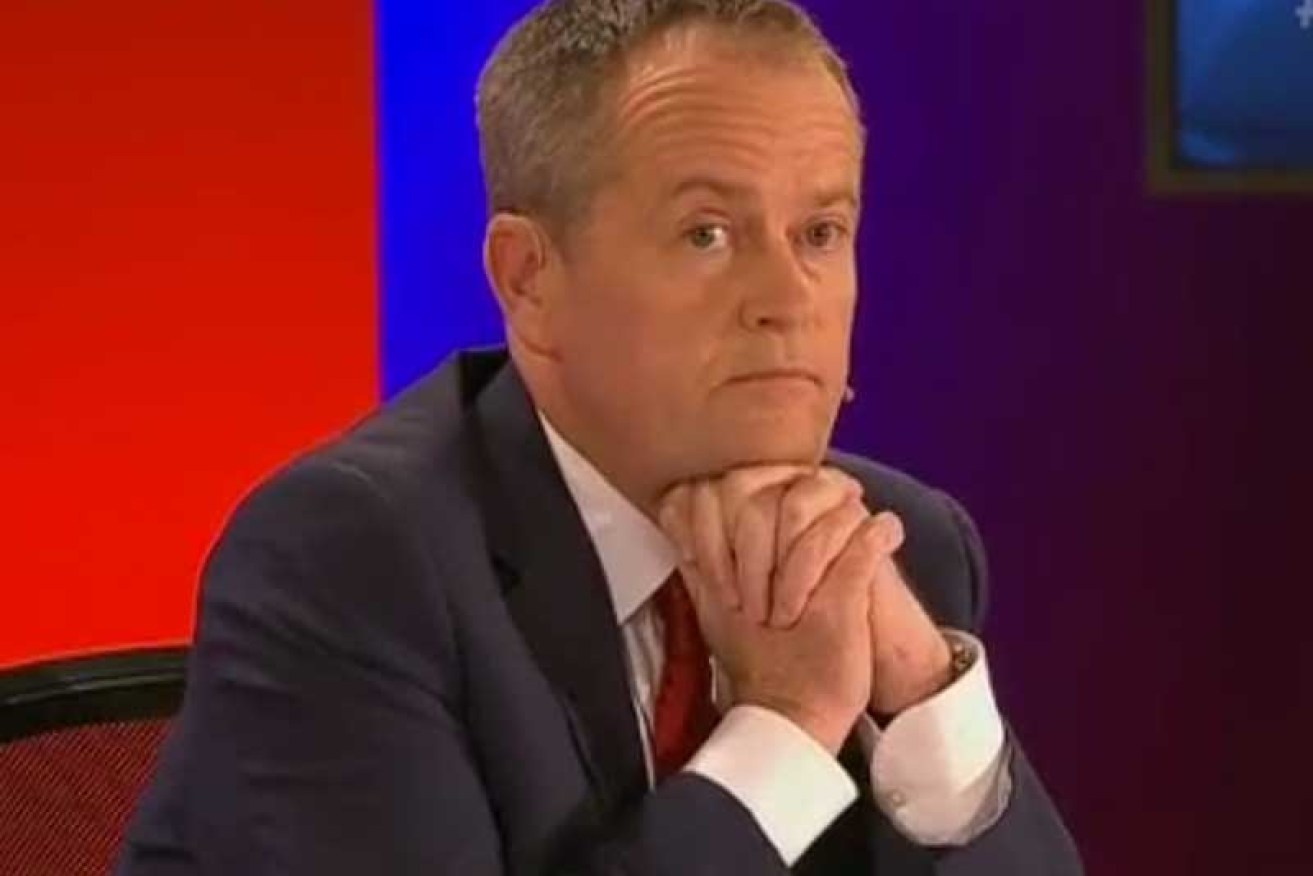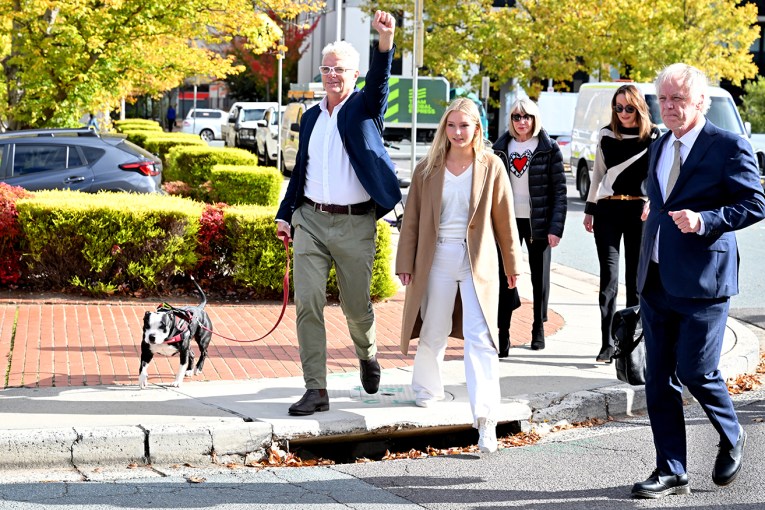Shorten wins more cheers than boos on Q&A


Opposition leader Bill Shorten lifted his game in an appearance on ABC flagship program Q&A in the face of speculation over his future against a popular Coalition leader.
Mr Shorten was the only panel member on Monday night, at a special episode filmed in Ballarat.
• Labor’s $4 billion university cash splash
• PM tight-lipped on GST, snubs Kirribilli House
• Coalition would win easily under Turnbull: poll
He faced a wide range of topics, including his past involvement in the union movement, education reform and Australia’s prospects as a republic, earning applause for many of his responses.
The Opposition Leader earned praise early on, following a question on the security of his job against the popularity of Prime Minister Malcolm Turnbull.
“I think it is a good thing for this country that Tony Abbott is no longer PM of Australia,” he said, to loud applause.
Although refusing to speculate on what Mr Turnbull’s popularity could mean for his career, he called for “a change in the way we do politics in this country” – away from leadership spills and onto policies.
Like Mr Turnbull, Mr Shorten has publicly expressed a desire for Australia to become a republic.
He reiterated this desire on Monday night, and said it would give the country a “lifeblood energy” at the international level.
“We are ready to have an Australian Head of State,” he said.
Shorten was also pressed on his involvement in the installation, and subsequent downfall, of former Prime Minister Julia Gillard, a time he described as “very difficult”.
“What Labor learned from that… is that you can’t treat this as business as usual and that politics is all just about the next opinion poll – that would be a mistake,” he said.
“Now I’ve watched the Liberals do exactly what we did.
“The difference is that the Labor Party has learned… we’ve got to be united… and then develop policies.”
‘We support the China FTA’
Mr Shorten denied the ALP was trying to stonewall the entire China Free Trade Agreement and instead wanted to see some aspects changed before they would sign on.
He said Labor supported having a China FTA and said their position has been “misrepresented” in some media reports and by the Government.
“We are concerned that there are matters arising from the treaty which need to be belt-and-braced, and I’m talking about the use of temporary labour coming into Australia and that there should be appropriate safeguards around that,” he said.
“With the previous PM negotiating with him frankly was a waste of time.
“I certainly believe that with the change in leadership in the Liberal Party, the chances of having an intelligent discussion and negotiation, I certainly hope they’ve improved.”
Unions Royal Commission a ‘politically motivated’ witch hunt
The Opposition leader also faced a grilling on his involvement with the unions – more than half of the hour-long show saw him questioned on this topic.
Mr Shorten was scathing on the trade union Royal Commission and labelled it a “politically motivated” effort by former PM Tony Abbott to “go after his political rivals”.
“I don’t believe it is the best use of $63 million, to investigate gossip and innuendo when in fact there are other mechanisms to investigate criminality. I don’t buy that,” he said.
Earlier this year, Mr Shorten faced the royal commission and answered questions on his former role as the Australian Workers’ Union national secretary.
“I answered over 900 questions at that royal commission,” he said.
“When you look at how the royal commission has managed to ignore other people who have gone there and asked them far less diligent questioning… I don’t think this royal commission has been a level playing field.”
.@billshortenmp responds to unanswered questions from #TURC and his specific negotiations #QandA http://t.co/JYdiYL8FpL
— ABC Q&A (@QandA) September 21, 2015
In his time at the AWU, he was involved in negotiating the pay and conditions of construction workers for the EastLink project, which happened at a similar time to a $300,000 deal between the union and engineering contractor Theiss John Holland.
Host Tony Jones pressed Mr Shorten on the deal: “People wonder whether that’s a conflict of interest, asking for money for the union while simultaneously negotiating a pay and conditions deal with the company”.
“We think that workplace relations works best when a union is making sure that our delegates and workplace reps are well trained,” Mr Shorten said.
“So certainly we would charge the company money for the training of our representatives so they could do their work well.”
Mr Shorten eventually denied the deal was made at the same time as the pay conditions were being negotiated.
‘Disastrous’ higher education reform
Elsewhere, he said tertiary students faced “disastrous” reforms to higher education under the Coalition.
On Monday, the PM announced a review of the higher education policy to ensure it passed through the Senate.
At the same time, the ALP announced plans to increase university funding by $2500 per student from 2018, if elected at the next election.
Multinational taxation and closing of superannuation loopholes would raise additional dollars for higher education funding under Labor, Mr Shorten said.
“The problem is if you take 20 per cent away from universities, what are they going to do to recover that loss – charge students more. And that’s the deregulation,” Mr Shorten said.
“I always understood that deregulation was positive where it would increase competition and decrease prices, but this would have the exact opposite effect.”










